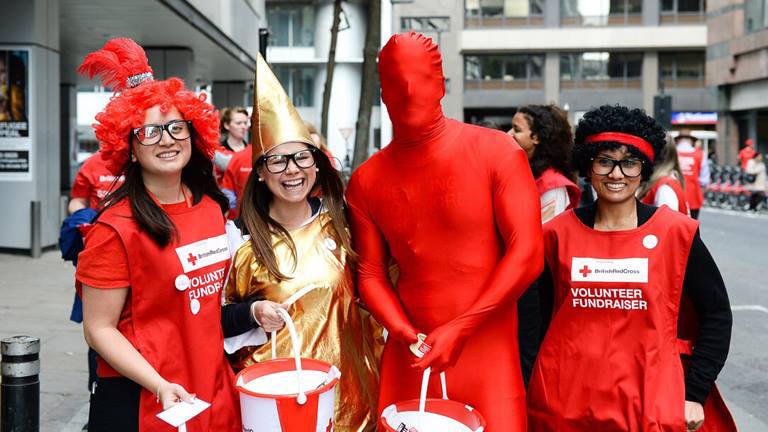It’s no mean feat to restart a society practically from scratch, never mind in the middle of a pandemic, but this didn’t deter Hannah Jones from rising to the challenge. The final year Arabic and French student became the president of the recently resurrected British Red Cross on Campus Society after a search for ways to get involved in the charity herself.

“I was looking for volunteering opportunities in general. On the Red Cross website, they advertised an on-campus volunteer position and I applied for that and got an email back saying that they liked my application but that the society wasn’t currently active,” she explains. “From their Facebook page, they seemed to be quite active but at the end of the year when the AGM happened the tracks got lost.”
Yet, despite a slow start (Jones initially applied to run the society in October) a new committee has been elected and is raring to go. Already in the works for this semester are mental health workshops, specialist guest speakers and socials such as online quizzes and film screenings. However, that’s just the tip of the iceberg.
“There is a scheme called Don’t Stop At 999 which gives people the knowledge of first aid if anything happens in their house or the street before an ambulance gets there” Jones tell me. With new research showing that just a measly 5% of adults have the skills and confidence to provide first aid in an emergency situation, it’s understandable that the charity has such a push on first aid training.
What’s more, the society is also aiming to broaden its outlook on an international level with Missing Maps, a disaster preparedness scheme where volunteers make maps for remote areas of the world that currently do not have them, and by getting involved with raising awareness of the refugee crisis. Living in Leeds, a designated City of Sanctuary for asylum seekers, piqued Jones’ interest on the issue, as did her studies.

“I’m doing my dissertation on the portrayal of asylum seekers and refugees in British and I think a lot of my interest in that has come from studying Arabic and just becoming a bit more aware of the different kinds of complex emergencies that are going on around the world at the moment.”
Nevertheless, the Red Cross on Campus Society and its members are also looking to make positive changes closer to home. A peer-to-peer support network called Safemates is in the pipeline for this term as well as a daytime equivalent to LUU’s listening and information phone service Nightline. “I’m really hoping to make it a place for students to support students as well because we are all going through a really hard time at the moment and there is a lot we can do as a society to support each other,” Jones says enthusiastically. “We are just going to try and make it a really collaborative society; we want the members to feel like they have just as much say in what goes on as we do on the committee.”
As for those interested in a future in the third sector, the society is planning on running skills sessions on getting a job in the field of charities and NGOs in addition to hosting talks from Red Cross representatives on future employment opportunities at one of the biggest humanitarian networks in the world. Yet, Jones also stresses the benefits of becoming a member of the society in the here and now.
“Especially with 2020 being that year that it was, with all of the amazing human rights movements that we saw across the world, I think this is a really good opportunity for students to get involved in something that makes a difference because the world seems like quite a dark place at the moment.”
She smiles: “Hopefully we can make some really good change.”
More information can be found on the British Red Cross webpage on LUU’s website or on the University of Leeds British Red Cross on Campus Society 2020/21 Facebook group.

